ME: “So I saw the property.
MOM: “And?”
ME: “I have good news and I have bad news.”
MOM: “What’s the bad news?”
ME: “The bad news is that it’s an absolute shithole.”
So went the first conversation the O’Grady family ever had about what would become the O’Grady family property in Maine, for a time.
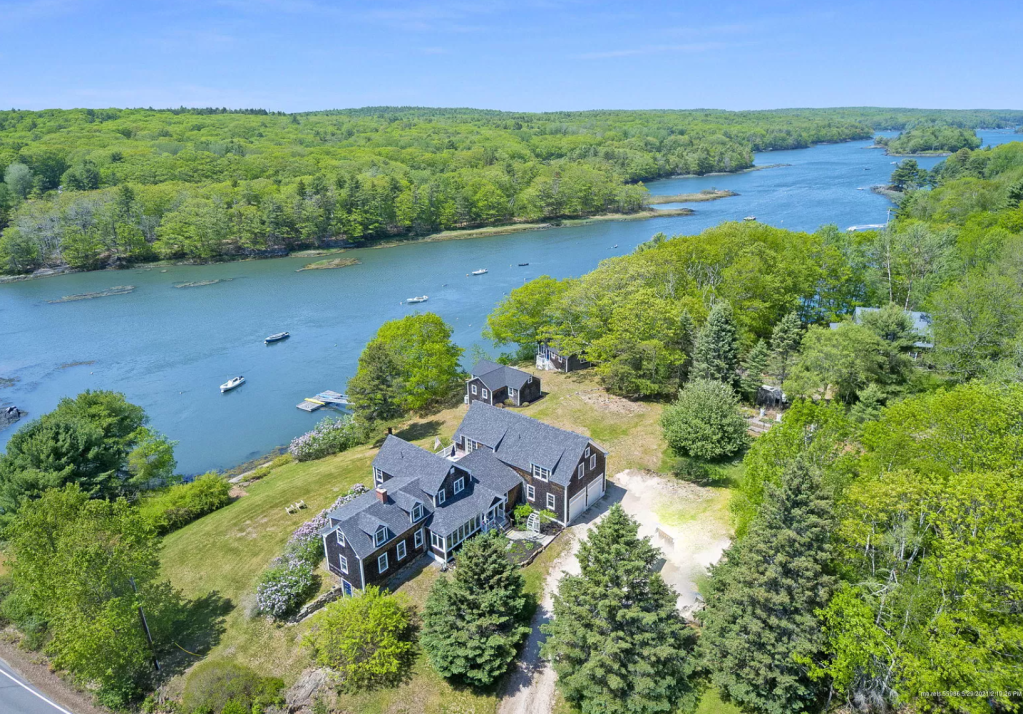
That exchange happened a little over twenty years ago. I was just outside of Portland on I-295, speeding back to my apartment in Southie. Back in those days, before I moved up here, I didn’t get much coverage north of Maine’s largest city.
As the geographically closest family member, I’d been dispatched by my parents to Georgetown, ME to look at a potential piece of property they were considering as a place to retire. So I dutifully hopped in the car and legged it up there to meet the realtor, Esther, a very nice woman in her sixties.
She drove us over the Bath bridge, down the island of Arrowsic and over a few more bridges on to the island of Georgetown. Long populated by the Abenaki tribe, the first English settlers arrived in the 1640’s, about twenty years after the Puritans landed in Plymouth. The population these days is actually down about three hundred from what it was during the 1790 census, 1333. Its primary claim to fame, among my friends at least, was that its stellar lobster shack, the Five Islands Lobster Company, was featured in a car commercial. A Nissan Maxima ad, I think it was.
The short version is that it’s a beautiful but sleepy little town. With way too many mosquitos.
The property in question had previously belonged to a retired MIT professor, one who had sadly let the property fall into disuse and then ruin prior to his death. The yard was tall grass that came up to my chest, the two cottages on the property were open to the elements and ruined and the best that could be said about the main house was that while it didn’t keep the squirrels out, it kept the rain outside.
Mostly.
You couldn’t beat the potential of the place. That was the good news I relayed to my Mom in my initial evaluation.
It had three separate theoretically livable structures, and it was right on the water. And I mean right on the water. The two cottages are maybe twenty feet back from the cove – a proximity that you could never achieve today with setbacks. Waking up in one of the cottages was like waking up on a yacht, not least because the entire front of both structures were windows. Georgetown, for its part, is a quiet little town, but not too far from a small city in Bath and just up the road from Reid State park which has one of the best beaches in the state.
But rehabbing the property would be a project, and a major one, and I wanted that to be crystal clear to my parents. Fortunately for them, they were in no immediate rush. Both were several years out from retirement, and the ability to break up the property rehabilitation into digestible stages via the cottages was attractive financially. They could start with the smallest cottage to make the property usable quickly, move on to the second slightly larger one to expand the usability and then finish up with the larger main house as they neared the finish line of retirement.
This was the plan, and they ended up following it, more or less. They got thrown a few curveballs, to be sure, but they did what my parents always did: they dealt with them. They tackled the construction iteratively, and they cleared and tamed the land the same way, by hand.
This was the wreck of the main house, none of which they were unfortunately able to save.
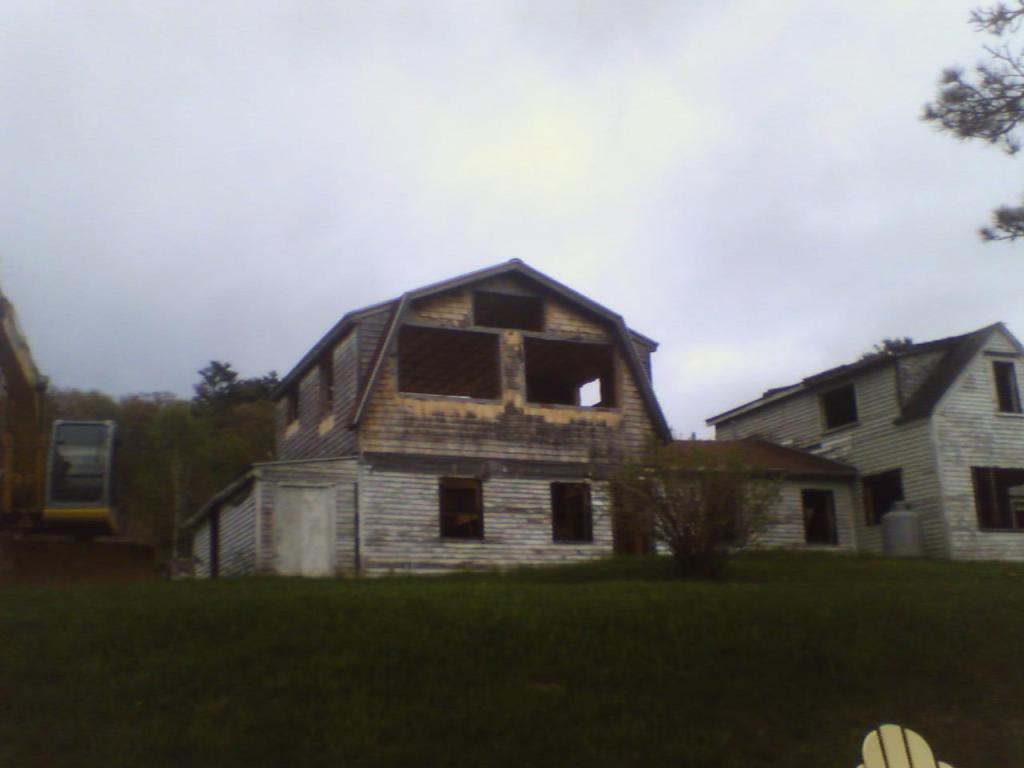
And these were the two cottages, the bones of which were in good enough shape that they were ultimately leveraged as the basis for the structures that are there today.
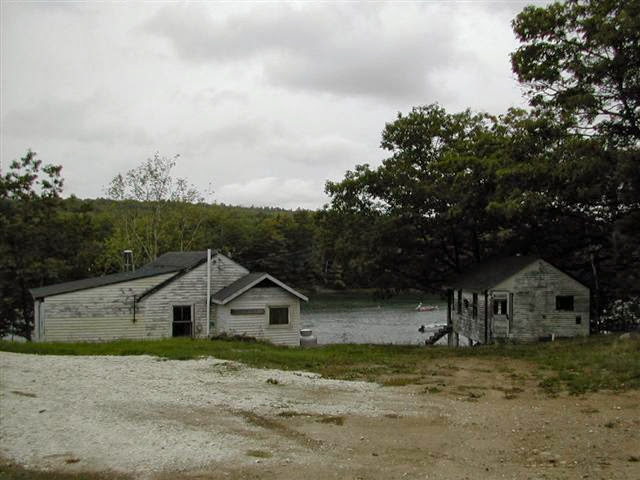
My parents poured everything they had into the property. They would drive up from New Jersey every chance they could, and spend the week or the weekend or whatever meager time they could spare getting up at the crack of dawn, bush-hogging the lawn, trimming back out of control growth, clearing dead trees and gradually turning the property from a tick and mosquito infested morass into a livable, enjoyable couple of acres.
Regrettably, my parents bought the property at the extreme limits of my digital history. I wasn’t as diligent about archiving everything as I should have been back then, so I have some pictures from that era, but not all. Sporadic email. A few ancient moving receipts. But what I did manage to turn up might help explain how I feel about the property, and why I’ll miss it now that it’s been sold.
As nearly as I can determine, the purchase of the property was made in July of 2002. I didn’t know it at the time, but my business partner James and I were four months away from quitting to start the firm that would become RedMonk. The timing would prove fortuitous, because the day we quit was the last day that I had any income for a while.
I had money saved up to tide me over, but when my landlord at the time in New Hampshire decided not renew my lease to give his similarly unemployed son somewhere to live I had a choice to make. I could move back to Boston, which would be tremendously beneficial to my social life but would dramatically shorten my runway for getting our little startup off the ground. Or I could move up to this new property that my parents had bought but would not be occupying for years and live rent free.
So on May 30th of 2003, I moved up to the bustling metropolis of Georgetown, ME. When I got there, the small cottage was a couple of weeks from being ready, and so for a month or two, I set up shop in what was left of the main house. When I’d come home at night, I’d hear the red squirrels running away, and all of the screens had huge holes in them so there was a sizable population of mosquitos inside. Technically there was running water from the well, but there was no filtration and no water heater, so as I preferred to shower in water that wasn’t cold, orange and laced with iron, I joined the YMCA. Oh and there was no stove, just a hot plate.
Good times.
I ended up living in Georgetown for about two years while we got RedMonk off the ground, before I decamped for Denver. Much as I loved Denver, though, and I really did love Denver, I missed Maine, I missed the water and I missed Georgetown.
The first year I moved out, in 2005, I came back east to stay in Georgetown for two weeks. The second year in Denver, I came back east for four weeks. The third year it was more like four months. The fourth year, I met Kate and I never went back. Maine was in my blood by that point.
Here are a few reasons why.

There aren’t many things better than sitting by the water, watching cormorants, ospreys and the occasional bald eagle hit the water – hard – and improbably, impossibly explode back out with a fish gripped tightly.
Every so often we’d get the occasional lost seal down our way, and the prehistoric looking sturgeon were alarming, leaping high out of the water for reasons that no one apparently understands.

It’s surprising how much satisfaction there is to be had transforming an overgrown jungle into a more balanced landscape that gets rid of – or at least limits – the role of invasive species such as Japanese knotweed and gives opportunity to the native flora. But my parents gave me that opportunity during brush cutting and collection days.
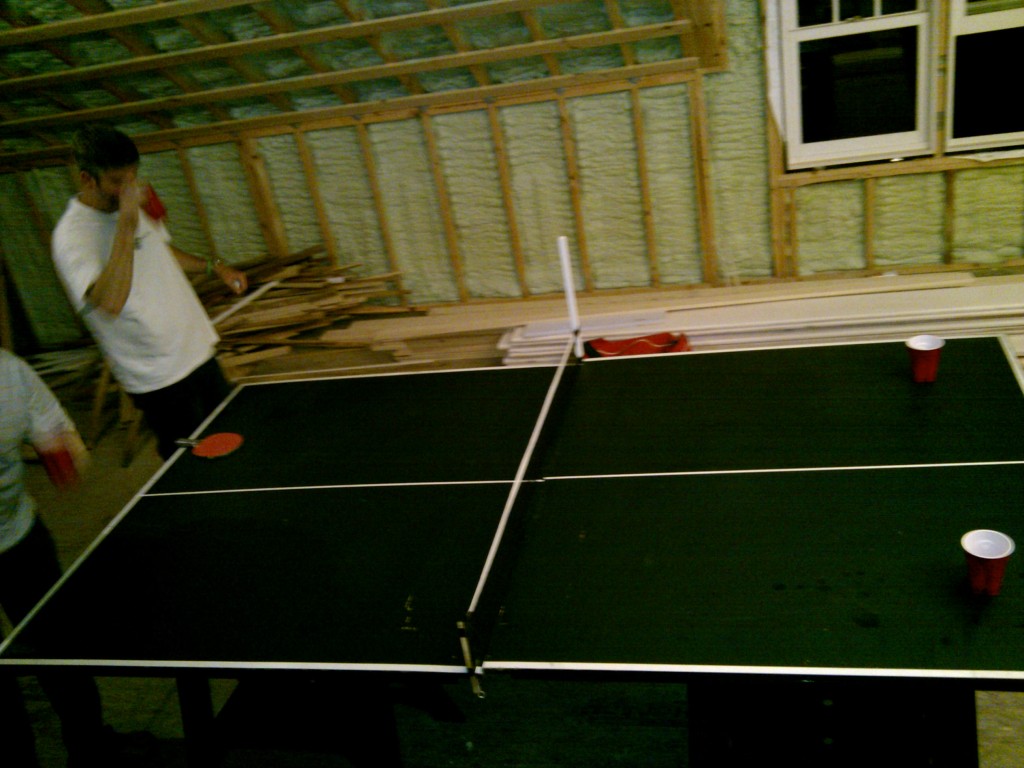

One of the handy things about having access to a property that is either about to be torn down or still under construction is that playing beer games like pong or foosball become easy decisions. Even if beer spills or things get wrecked, what’s the harm?
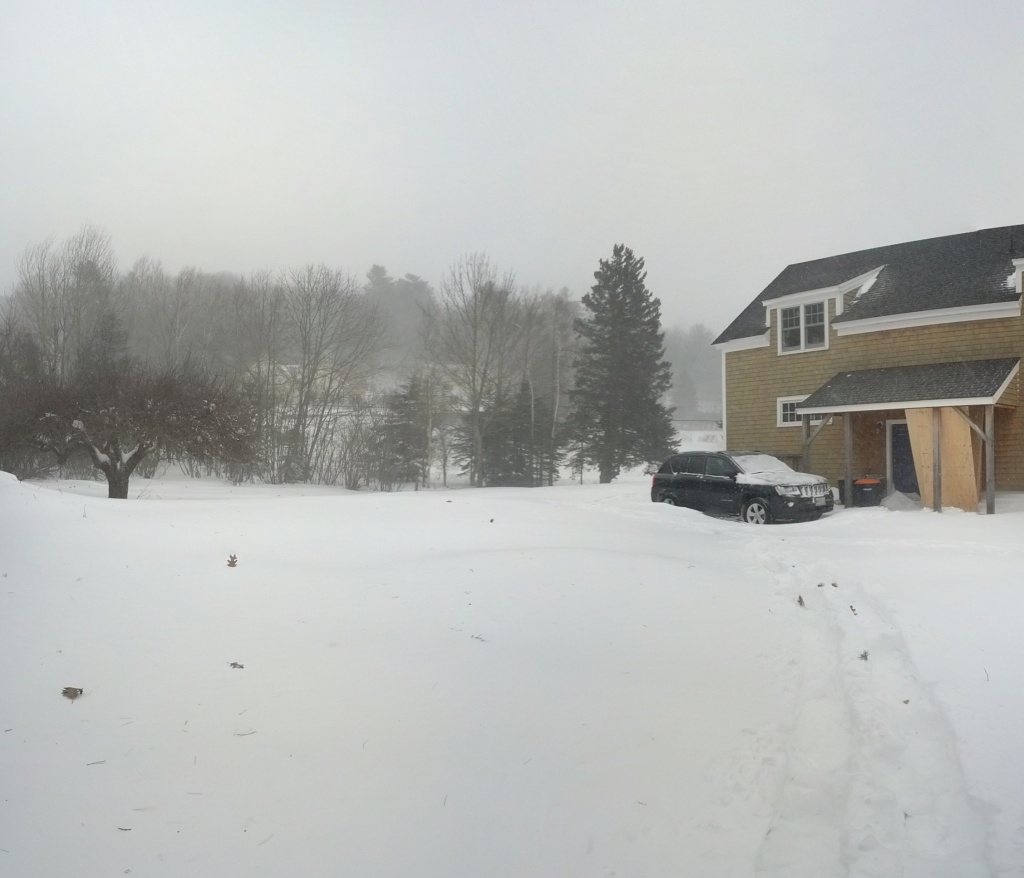
The house was enough of a destination that it hosted many friends over the years. We had a couple of memorable Memorial Days up there, none more so than the time we used the veritable forest of mint in the side yard to make mojitos that looked like salads.
In more recent years, friends got snowed in with us for the weekend. Which was all the excuse we needed for non-stop Hearts marathons by the wood stove.
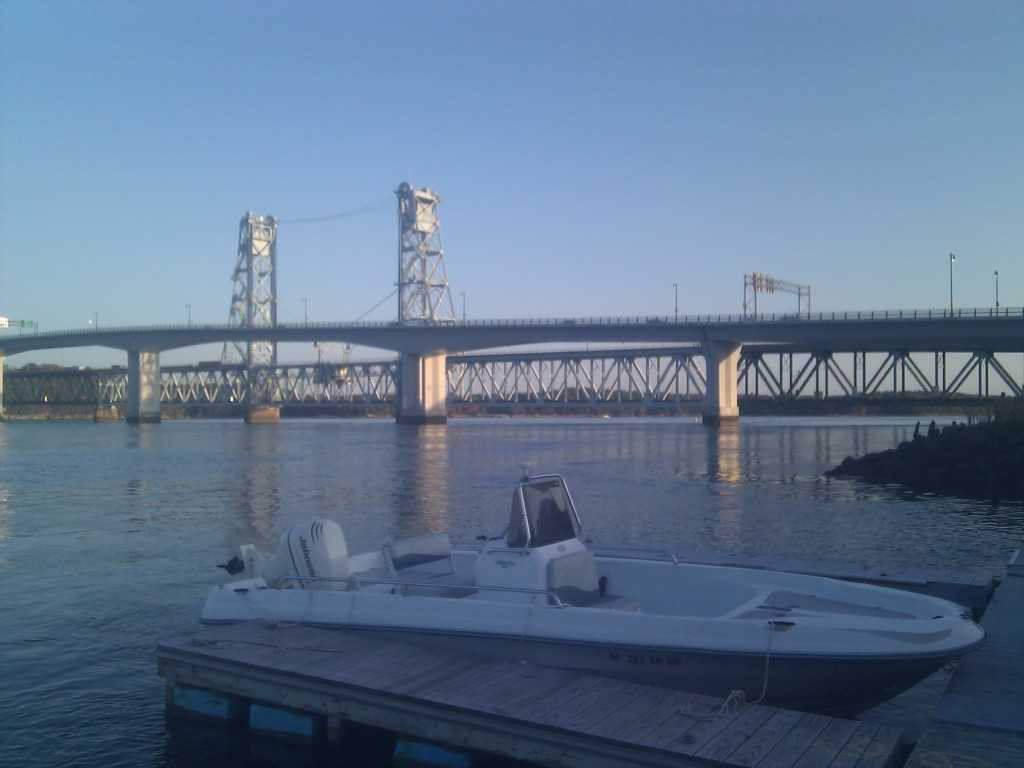
When I first lived on the property there was neither a dock nor a boat. When I started coming back, however, these had been acquired and transformed the property completely. Instead of being landlocked, the boat and dock combination opened up a world of possibility.
I still remember being ratted out by the GPS, however.
The boat had a combination GPS/depth finder. And unbeknownst to me and unlike the GPS in, say, your car, it retained a track of your movement. It turns out docking is in fact quite hard, particularly when you’re doing it solo. This only occurred to me literally as I was on the final approach that first time. The short version of the story is that I must have made twenty or thirty passes at the dock before I was able to tie everything down on my own. The GPS recorded the maze of all of these aborted docking wave offs, but I assumed they wouldn’t persist between sessions.
I was wrong.
As soon as my parents took the boat out the next time, every single last missed pass at the dock came up as a knot of lines and my parents had questions. Questions I would have preferred not to answer.

When I lived up there on my own, I’d schedule my work calls from early morning through 1 PM or so, and then I’d pack a quick lunch and a beer or two and take the boat down to the top of the cove. I tried various hardware combinations to take calls from the boat – and one of you that might be reading this was kind enough to send me a headset with wind reduction algorithms – but I never did get any of them to work. The person on the other end of the line could always tell I was on a boat.
So anyway, once I’d cruised down the cove, I’d throw out an anchor, stretch out and read a book and have a beer. If it got hot, I’d jump into the cove, swim around to the swim platform, dry off and lay back down. Rinse, lather, repeat. Then I’d come back and, having no other obligations, work for a couple of hours after dinner.
The only time this anchor-and-swim strategy proved to be problematic was when I ventured further afield, anchoring up near the Chops just south of Merrymeeting Bay on the Kennebec. No matter what I tried, I could not get the anchor to come up, and was convinced I was going to have to dive in and follow the line down and free it by hand before the boat itself freed it for me.
Net net, though, there’s literally nothing as relaxing as taking a boat out to some quiet, calm water, parking it and relaxing with a book and a cold beverage.

While I’d lived there on my own for a number of years, Kate and I lived up in Georgetown together for a little while we house hunted and eventually bought down in Freeport. We were living in Georgetown, in fact, when we got engaged and when we got married. Our engagement dinner was at the now sadly closed Robinhood Meeting House, and this was taken while we were packing for our honeymoon.

Fishing up there took a while. First, because I decided to fish the salt water with flies. Compared to the river gear I was used to, everything was bigger, heavier and harder to cast. I gave myself golf ball sized welts on the back of my head several times hitting it with the large salt water flies, but I counted myself as lucky that I never hooked my scalp or ear. But even when I had the technique down – or at least down well enough to not hit myself in the back of the head – I couldn’t find the fish.
I caught one, pictured above, after kayaking down the cove a ways and fishing off an uninhabited small island. But I never had any real luck until the poor ospreys blew up.
Over the course of that summer, an osprey family had made a nest in a particularly unwise location just above a power transformer across the street. Around 4 AM one night, their luck ran out and the transformer exploded, showering the street with sparks, knocking out power and practically ejecting me from bed.
Unable to get back to sleep, I grabbed my rig and wandered back down to the dock to fish. As it turns out, dawn is a good time to fish. After months of striking out over and over, I pulled out a fish every other cast until my arms got tired. Nothing big, but fish after fish after fish. It was glorious, though mitigated by the poor osprey family’s demise.

Speaking of ospreys, The Osprey restaurant – a bar/tavern at the local marina – was the only place on the island to get a beer, so I spent more than a few nights there doing just that, while watching the Sox with the bartenders I’d gotten to know and looking out at the water. As local joints go, it’s tough to beat a marina bar.

I was never a regular at the lobster shack down on Five Islands, on the other hand, but it was a staple whenever anyone came to visit. There aren’t too many places where you can watch the lobsters you eat get hauled out of the water, but this is one of them. And it’s not just lobsters, please note: their onion rings are great as well.

Whenever the weather was good, whatever the season, Reid was right down the road. The water is cold, but after a minute or two you forget that. Worst case you go numb.
You can fish down at Reid too, though as I learned when I got kicked out a few times the park rangers have a very conservative definition of the word “sundown.”
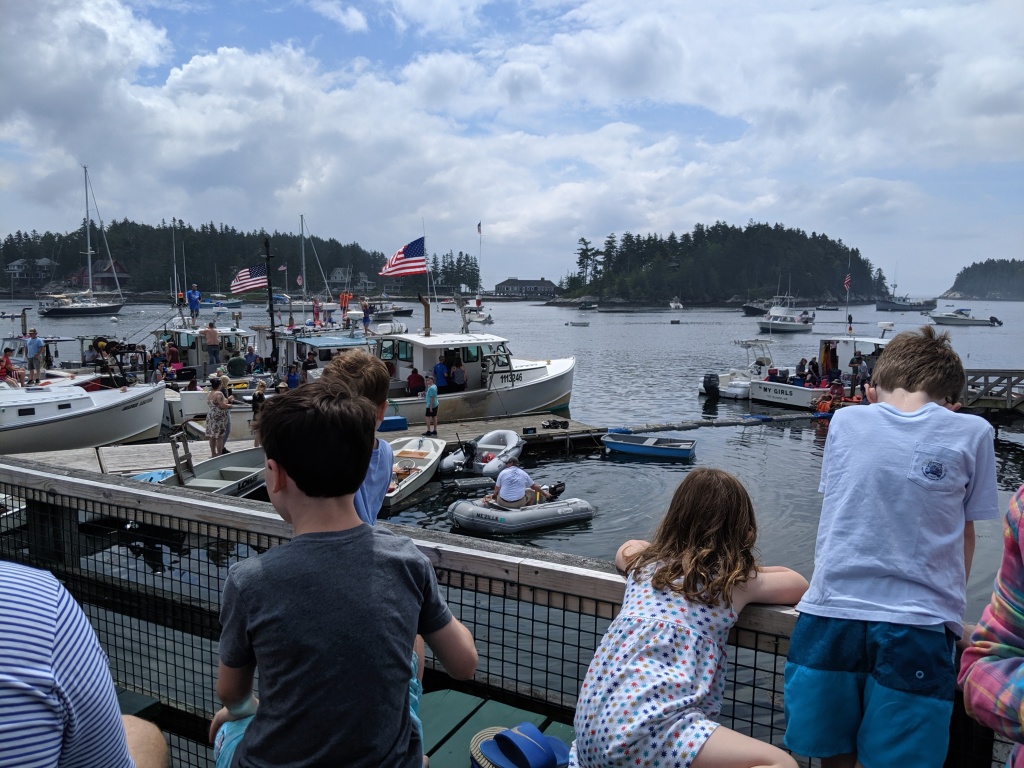

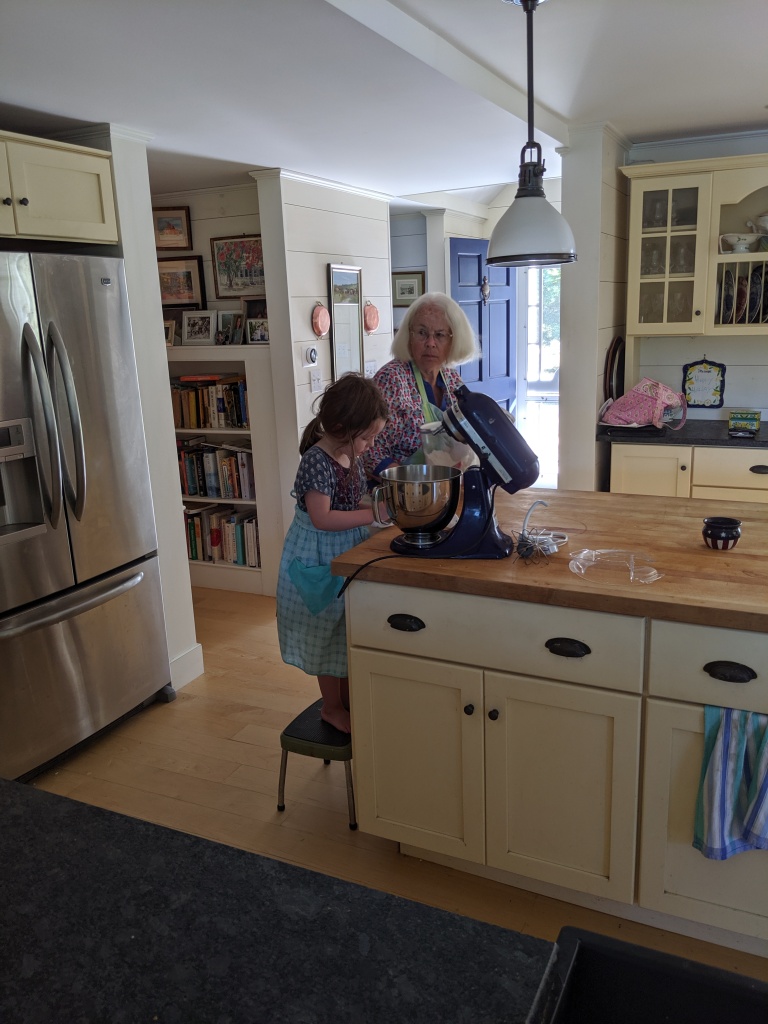

If we’re being honest, though, what we all enjoyed the most about the property was bringing the kids. Whether it was picking vegetables, baking cookies or going down to the Blessing of the Fleet, they made everything fun. A lot more challenging, obviously, but fun.

The times there weren’t always good. Having to put in a ramp for my Dad after he broke his leg during his battle with cancer was an unhappy milestone.
But that’s not what I’ll choose to remember.

When I think about Georgetown, I’ll think of lazy afternoons on the dock.

Or waking up and looking out these windows, feeling like you’re at sea.
I’ll miss the Georgetown house a lot, but I’ll certainly never forget it. May it give its new owners as much happiness as it brought to the O’Grady family.